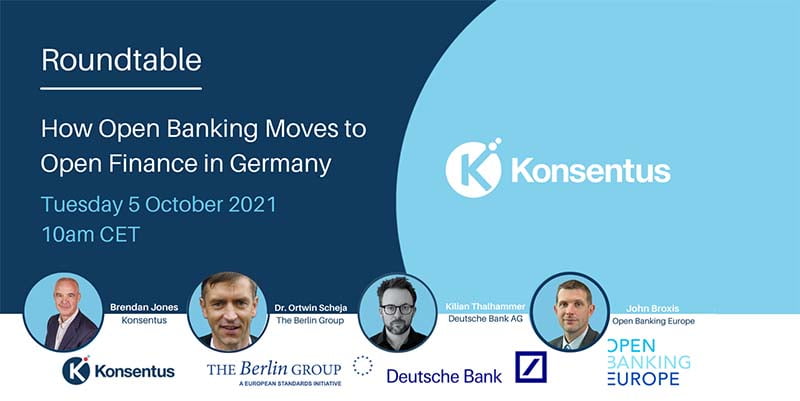Guest speakers comprised Kilian Thalhammer, Managing Director and Head of Merchant Solutions, Deutsche Bank; John Broxis, Managing Director at Open Banking Europe; and Dr Ortwin Scheja, Editor of Berlin Group & Management Consultant for Payments, XS2A, Bank APIs, Open Finance API Architect.
John Broxis began with an overview of the TPP landscape in Germany, describing which TPPs have been newly regulated or had their regulatory status withdrawn. With the highest number of domestic TPPs in the EEA, standing at 37 in September 2021, there are another 93 TPPs which can passport in their open banking services from outside the country. This creates a total of 130 TPPs which can provide open banking services to consumers in Germany. Of the passported TPPs, Lithuania is the most common Host country, followed by France and the Netherlands.
Thanks to its global membership programme, OBE has a unique perspective on the development of open banking and open finance. They have undertaken some work to categorise the types of Open Banking services being provided by these ‘pure-play’ TPPs, identifying 23 Open Banking enabled services across six categories:
- Manage (account aggregation, personal finance management, etc.)
- Trust (credit scoring, KYC, etc.)
- Insights (consumer spending profile, business intelligence, etc.)
- Pay (payment initiation, purchase on account, etc.)
- Administer (accounting services)
- TPP (API aggregation, TPP-as-a-Service, etc.)
In Germany, the top services are account aggregation and payment initiation. Interestingly, a quarter of TPPs in Germany offer only one service, and another 34% offer only two. This provides great opportunity for these TPPs to either extend their range of services or to specialise and enter new markets. This will likely change as we move into open finance and new revenue streams are identified.
Kilian Thalhammer then took to the floor and described Deutsche Bank’s journey since implementing its first open banking products three years ago. There has naturally been much trial and error, and many use cases, with no clear winner yet coming to the fore. Several scenarios which were thought would come with Open Banking are still to materialise, and new business models are now more likely to be seen as the market prepares to move into Open Finance.
Dr Ortwin Sheja concluded with the message that open finance should learn from the implementation of open banking. Unlike open banking, Open Finance will be led by use cases, not technology. As a result, it has the potential to take off quickly with a much wider reach. In anticipation of this change, the Berlin Group decided to begin the transition to open finance last year. Dr Sheja talked through the use cases the Berlin Group has been prioritising and the standards being created.
Although progressing slower than anticipated, Open Banking has laid the foundations for a successful transition to open finance. As open finance learns from the lessons of its forerunner and is adopted by market leaders, we will see changes occurring faster than ever. And as unregulated players enter the market and API calls rocket, the need for a solution which is ready for Open Finance, identifying and verifying all third parties in real time, will be indispensable.
To learn more about Open Banking and the world of TPPs, tune into our future webinars here.





